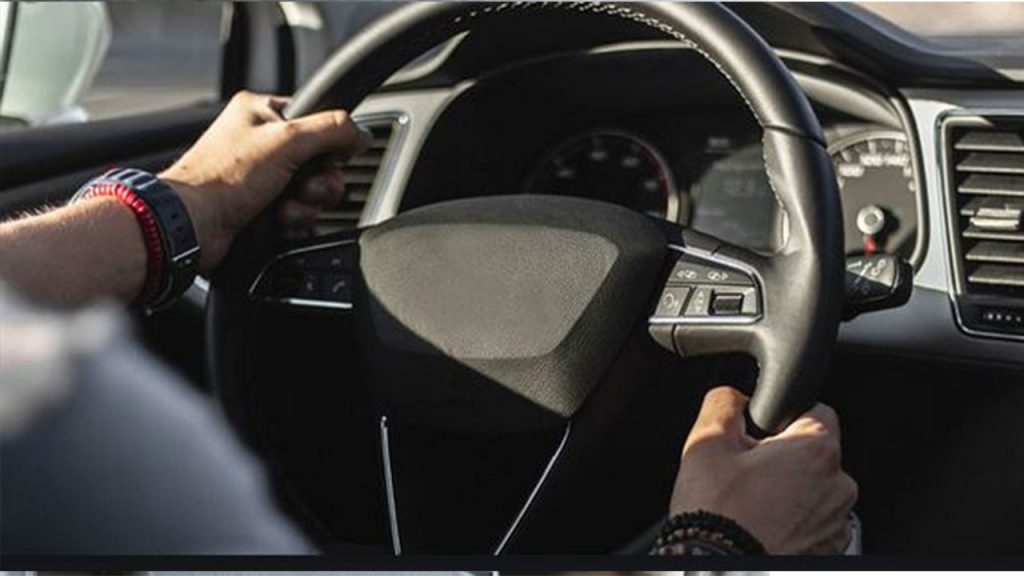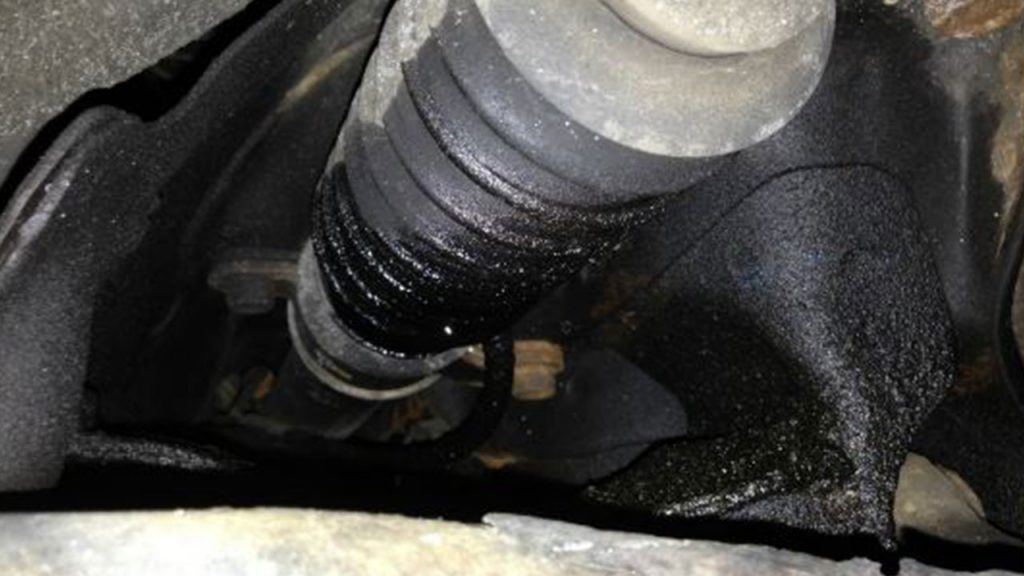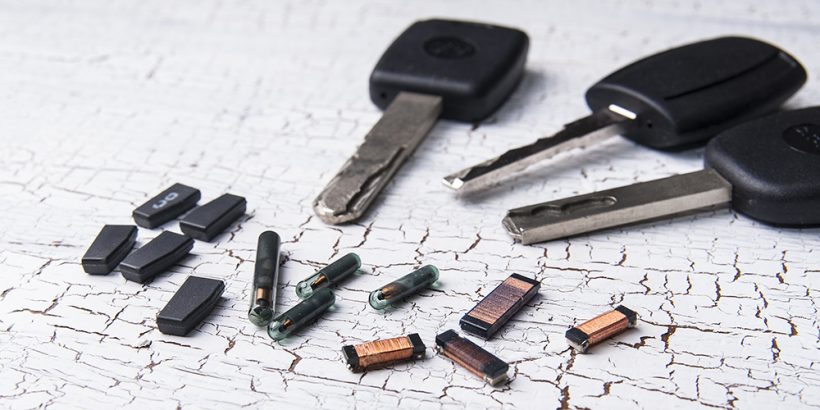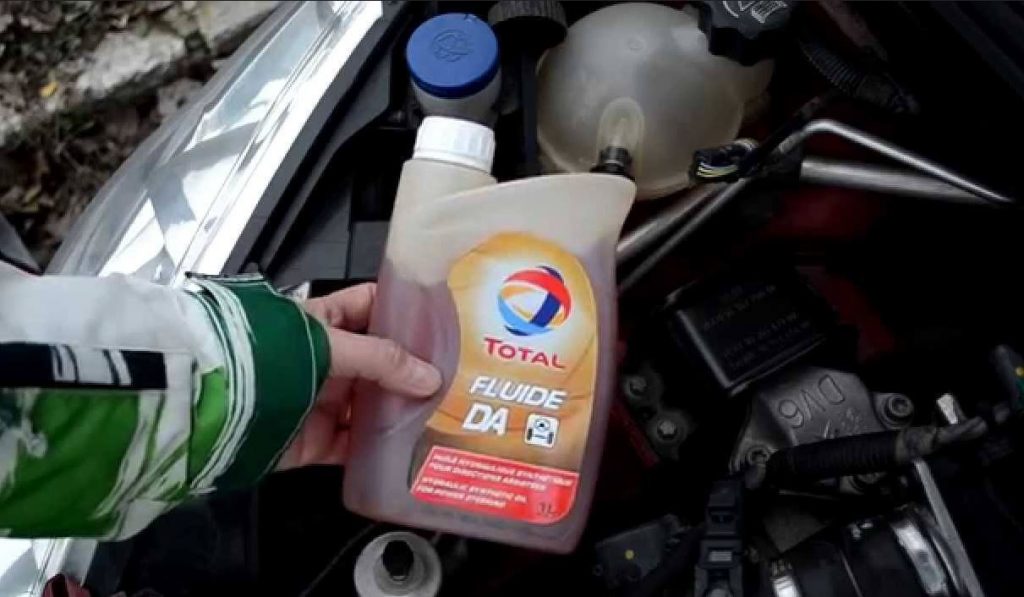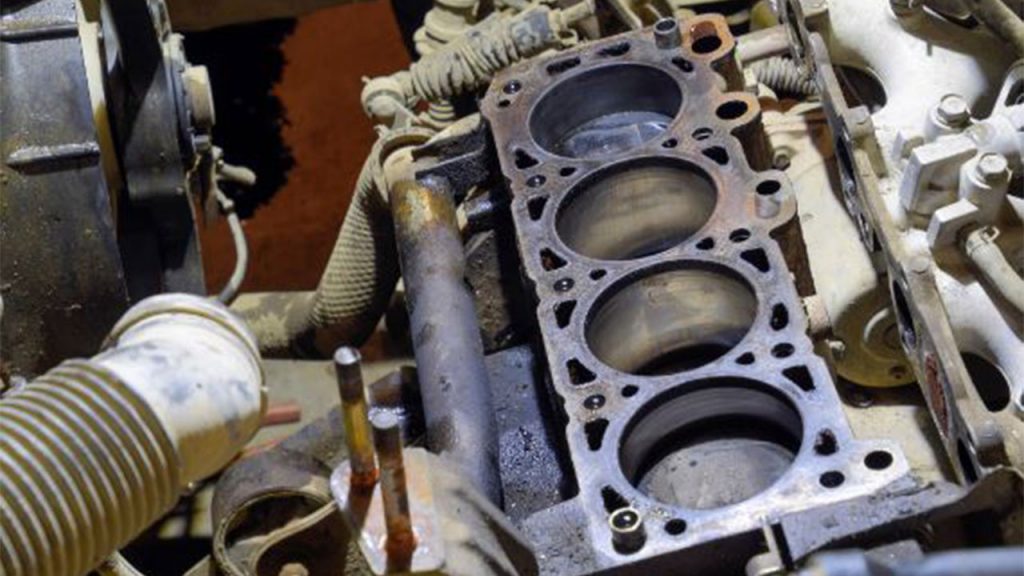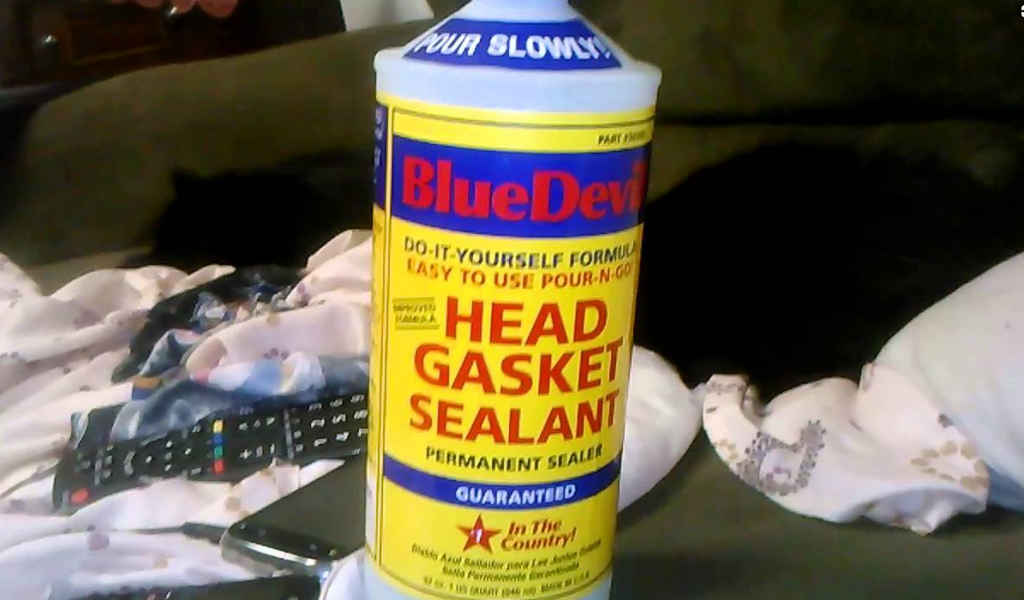Last updated on May 18th, 2022 at 01:02 pm
If you for common overheated catalytic converter symptoms and how to diagnose a bad catalytic converter, then you have your guide.
Covers the best fix for car overheating caused by bad catalytic converter as well as symptoms of a bad catalytic converter, what happens when catalytic converter fails, and can a bad catalytic converter cause car to shut off. Catalytic Converter Scrap Price List(Ultimate Lookup Guide)
Yes, it is known that an overheated catalytic converter happens due to excess hydrocarbon (HC) found in the exhaust stream.
This happens when unburned fuel enters the cat converter and then burns, which will then create intense heat.
Excess unburned fuel in the exhaust system is the most likely cause of a clogged or damaged cat converter.
Below are causes of clogged cat converter which leads to overheat
Restricted Flow
A faulty cat converter can stop the natural flow of exhaust emissions that is exiting a vehicle’s engine. This will increase the amount of backpressure around the vehicle’s engine leading to overheating.
The gases in the exhaust will be pushed out of the vehicle’s engine by the pistons and pass through the exhaust and flow out of the vehicle’s tailpipe.
When there’s any obstruction or blockage along the way could lead to huge problems for the vehicle’s engine.
Overworked Engine
Due to exhaust pressure building up within a vehicle’s engine, the normal combustion that happens will be compromised.
In every car engine that is functioning normally, the combustion occurs at precise times and incorrect amounts.
When a catalytic converter is faulty or bad, it can disrupt the normal combustion properties of an engine, which can force the car engine to work harder in difficult conditions just to emit the burned exhaust gases.
Whenever this occurs, it will raise the operating temperature of such an engine, and once you leave it untreated, it can cause overheating to your car’s engine. Related: Will A Clogged Catalytic Converter Cause Loss Of Power
Disruption of Air/Fuel Mixture
All vehicle engines need a delicate balance of fuel and air if they must function correctly. Whenever that air/fuel mixture is compromised via a car engine, lots of issues can happen, which include overheating. A faulty cat converter that alters the combustion properties and ratios of a vehicle’s engine, could alter the exact air/fuel mixture, and this will lead to overheating and poor performance of the engine.
Here are the symptoms of a faulty catalytic converter that can lead to an overheated engine:
- A slow engine performance
- Reduction in acceleration
- A dark smoke via the exhaust system
- Sulfur or rotten eggs smell from the exhaust system
- An excessive heat under the car
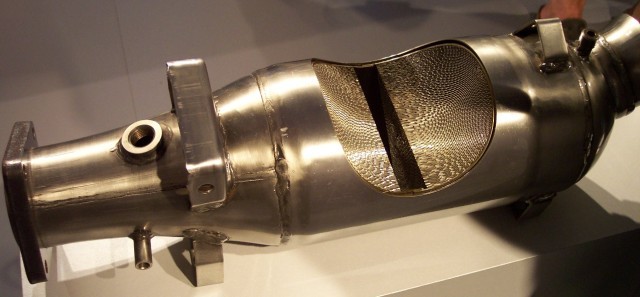
Can Catalytic Converter Cause Engine To Overheat
Yes, it can because they sometimes get clogged, damaged, and contaminated which could cause a reduction in how the engine performs. Although catalytic converter happens to be one of the long-lasting components in the vehicle exhaust system. The problems with a cat converter include leaded fuel contamination, engine overheat caused by incomplete combustion or a failure in the oxygen sensor.
Can A Bad Catalytic Converter Cause Car To Shut Off
As you know, the cat converter duty is very vital in your car’s exhaust system. This is because it prevents environmental pollution as it helps to convert harmful substances within the exhaust system into safer compounds. But can a bad catalytic converter cause car to shut off?
My answer is simply yes, it is possible for a bad catalytic converter to make a vehicle to stall. Sometimes this can happen once you press the acceleration pedal.
Symptoms Of A Bad Catalytic Converter
Normally, a catalytic converter is supposed to last throughout the car’s lifetime but can go bad sometimes and would need to be replaced. Sometimes this happens in older cars whenever the cat converter becomes clogged. When this happens, the vehicle’s exhaust gases won’t be able to go through to the muffler and then out of the vehicle.
As time passes, your vehicle can also use all the metals that work as the catalysts in the converter, which could cause the converter to completely fail.
But how do you know when the catalytic converter requires replacement or repairs? Below are five common symptoms of a bad catalytic converter.
1. Reduced Acceleration Power
Whenever your car is losing power while going uphill or accelerating, there are chances that your cat converter is clogged. Most mechanics indeed fail to diagnose what caused the loss of acceleration power, and this could be where the cat converter was partially obstructed.
Check the exhaust’s status yourself to determine if your catalytic converter is clogged. You can do this by placing your hand at the tailpipe while someone else is holding the vehicles’ RPM at around 1800 and 2000. After doing this, if you notice a hot exhaust flow, then it means your catalytic converter is clogged.
2. Engine Misfires
A misfiring engine is one of the common symptoms of a bad catalytic converter. When your vehicle misfires, it shows incomplete combustion within the cylinder, and it shows that the cat converter is not functioning effectively.
Normally, any clogged cat converter will be overheating and could damage your vehicle’s engine. So whenever you experience an engine misfire, make sure to contact a reliable mechanic immediately for catalytic converter repair or replacement services.
3. Increased Emissions
When you have an increasing carbon emission from your vehicle’s exhaust, it is a symptom of a bad or failing catalytic converter.
Once the car’s cat converter is faulty, then it won’t reduce the number of emission gases within the exhaust system.
But when you experience a higher carbon emission from your car, then it shows that the converter is clogged.
So when you don’t immediately repair or replace it, the cat converter can damage the whole exhaust system.
4. Reduction in Engine Performance
One other symptom of a bad catalytic converter is degraded engine performance. When a car’s catalytic converter is failing, it will create significant backpressure which lowers the way your car’s engine performs.
When this happens, you’ll observe the car shaking frequently, and whenever there’s a sudden outburst of pressure, it could cause your engine to stall even while on the road.
4. An Illuminated Check Engine Light
You will have your check engine light illuminated, but there are lots of reasons why the check engine light will illuminate on your car’s dashboard, and a bad catalytic converter is one of them.
There are air-fuel ratio sensors that come in modern vehicles that are designed to monitor the exhaust gas levels.
So whenever the Check Engine Light appears in your dash, it is a simple indication that the converter isn’t working well. But since other mechanical problems can also activate the CEL, experienced mechanics should check your car for proper diagnosis and repair.
How To Diagnose A Bad Catalytic Converter
Whenever the catalytic converter doesn’t work, the compounds exhausted from the vehicle will be more harmful to the environment.
However, replacing your catalytic converter can be expensive, so it’s vital to verify the symptoms. So here’s how to diagnose a bad catalytic converter.
Step 1
Examine to see the tachometer for any reading that’s lower than normally produced by your car. A decreased engine power due to a bad cat converter will cause the tachometer to be showing lower RPM reading.
Step 2
Try tracking the fuel mileage obtained by your vehicle. Indeed, cat converter issues often reduce a vehicle’s fuel economy. So if your vehicle needs more gas to travel familiar distances, it shows that the catalytic converter could be the cause.
Step 3
Examine and observe the temperature of your vehicle’s engine. When there’s reduced engine efficiency of any car with a bad catalytic converter, it could cause that energy that’s supposed to be used to power the vehicle to become heat. This will be causing the temperature of the engine to go up or down as the vehicle moves.
So whenever the catalytic converter is bad, the temperature will remain higher than it normally should while moving at a constant speed.
Step 4
Just accelerate the vehicle. One of the easiest ways to notice cat converter problems is by paying close attention whenever the car is accelerating. Observe for stuttering or bucking motions as the vehicle moves forward. It may sometimes hesitate to move for a moment whenever you press the gas pedal. Note that this is normally followed by a strong jolt while the vehicle jerks forward.
Note that a bad catalytic converter might cause the vehicle’s engine to stall. The engine will usually start without issues and will stall immediately when you press the gas pedal.
Step 5
Inspect the exhaust system from your vehicle. It normally would be filtered by the catalytic converter. When there is more smoke emitting than usual shows there’s a problem with the catalytic converter. Note that some vehicles that have bad catalytic converters sometimes emit black smoke.
Just try to smell the air behind the car. A malfunctioning catalytic converter would often emit hydrogen sulfide, and this compound will smell like rotting eggs and can be very offensive.
Can A Catalytic Converter Unclog Itself?
The catalytic converter sometimes can be clogged up causing your vehicle not to run effectively. This happens because the catalytic converter collects lots of stuff and particles from the engine. So sometimes it needs cleaning after being clogged. But can a catalytic converter unclog itself? Keep reading to find out.
Normally catalytic converter can’t unclog itself. However, the only way a catalytic converter can unclog itself sometimes is via driving long at a particular level of high RPMs. This is because you have to sustain it for very long while driving.
However, in case you intend to give it a try, look for a highway where you can drive without having any interruption. Just make sure to keep the car at 2500-3000 RPMs for at least half an hour.
Note that there are other ways of unclogging a catalytic converter that needs no effort from you except driving. This is a cheaper way to get your catalytic converter unclogged.
What Happens When Catalytic Converter Fails?
Catalytic converters don’t normally fail on their own; when they fail, it’s usually a symptom of a larger problem. So you must identify the causes of the failure and perform a repair before installing a new converter.
When the catalytic converter fails, it will begin to flow poorly because of being clogged up, and it will cause the car to run extremely poorly. Not only that, when the catalytic converter fails, it could lead the car to be sluggish in performance, and would eventually shut down the engine.
Best Fix for Car Overheating Caused By Bad Catalytic Converter
For many car owners, taking their overheated car to the garage close to them is the easiest way for them to get back on the road.
But there are some steps you can take to fix car overheating caused by a bad catalytic converter.
- Pressure test the radiator system for leaks
Purchase a pressure leak testing kit. Next is to attach it to the radiator, and then pump up the pressure. But if water comes out of the holes in the radiator, then it means that you leak.
In case you want to find a less obvious radiator leak, then pump up the tester and watch the gauge; but if it starts to move down, there’s a leak.
No leaks? Then check your radiator cap
A radiator’s cap is supposed to hold pressures. However, when they are worn out and rusty, then you may need to replace them.
Sometimes you can pressure test the cap using a special system, but it’s best you buy a new one.
- Check your cooling fan
When the car overheating problem persists, try to check your cooling fan.
You can turn it on full blast and then check under the bonnet to observe if the fans are still working. But if they are not, then it won’t supply enough air into the radiator, which could cause the engine to overheat.
Note that the most likely reason for a faulty fan is that the motor has burnt out. So you can examine the fan motors using a jumper wire: just attach one end to the positive cable via the battery and the red color cable which feeds the motor that you want to test should be attached. But if the fan fails to spin, it means that the motor is burnt out. However, if the cooling fans are functioning normally, it means that your thermostat is faulty.
Sometimes these components close whenever the engine heats and open whenever the engine is very hot. This makes thermostats sometimes get stuck.
The thermostats can be found when you follow the radiator hose to the thermostat housing. You’ll find out that it has a bolt-on on the top and the bottom; you can pull off the thermostat out and replace it with a new one.
Concluding on overheated catalytic converter symptoms & Fix car overheating
Whenever you suspect a clogged catalytic converter, your mechanic can temporarily take off the oxygen sensor from the exhaust pipe which is in front of the cat converter and examine for any changes in performance.
The catalytic converter needs the right mixture of exhaust gases at just the right temperature. When anything causes the mixture or temperature to change could cause the cat converter to perform less and fail faster. In this post, I have shown you the best fix for car overheating caused by bad catalytic converter and we have also discussed can catalytic converter cause engine to overheat
What to read next: How To Fix A Clogged Up Catalytic Converter




